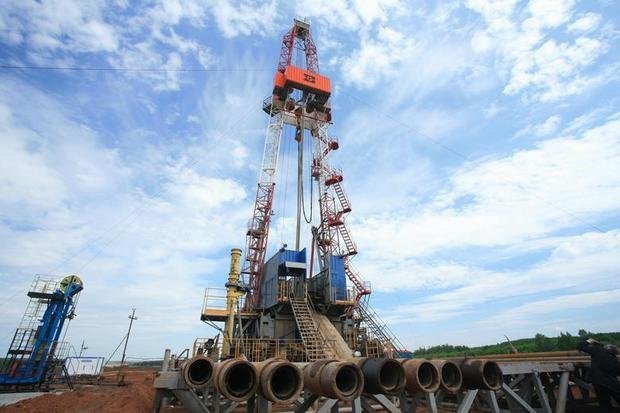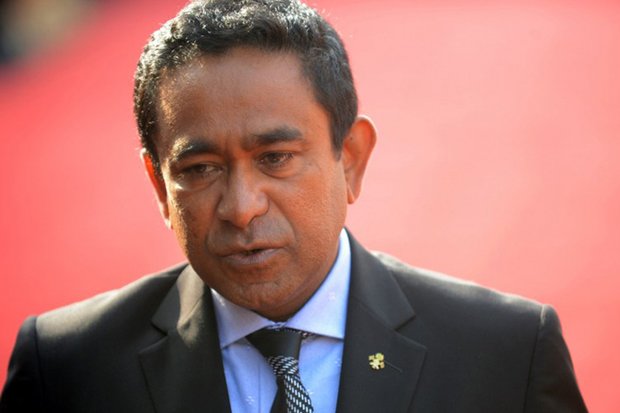International panorama: Trump presidency anniversary, petroyuan for Shanghai, and Maldives state of emergency
Retired Soviet diplomat Yulduz Khaliullin about the absence of stability in the world. Series 13
Soviet and Russian diplomat Yulduz Khaliullin dedicated his next column for Realnoe Vremya to events taking place in America, Asia and the country in the Indian ocean. Our columnist summarizes the results of Trump's year as president, tells about petroyuans and worries about the political crisis in the Maldives.
From presidency anniversary to stock plunges
The year of Donald Trump's presidency in the United States has been marked in a very peculiar way in all respects. The congressmen and the presidential administration exchanged memoranda of protests on various investigations, which have been under way for already several months. The publication of the Kremlin report even in the United States themselves is seen as an open attempt to interfere in the course of the presidential election in Russia. It is unsuccessful, I must frankly say.
As for the state of the economy, many analysts involved in the surveys believe that there has been some success over the year. However, US GDP growth amounted to about 2% last year — it is not such a significant figure. Many developed countries, including Russia, have approximately the same indicators.
More symptomatic is a sharp drop in Dow Jones indices in the US stock market — about 4% for two times during the first week of February. This led to a similar drop in market prices in London, Paris, Berlin and Moscow. Such plunges have had a certain impact on the state of cryptocurrency in the world markets: there was a sharp drop in its value — by 50-60%.
In this regard, Beijing and Seoul, where the cryptocurrency has a certain weight, became alarmed and took certain measures. Such jumps in the stock market may be temporary, so it is too early to predict a possible economic crisis.

Chinese alternative to petrodollar
The world's media, especially Chinese, report that Beijing intends to launch petroyuans in the coming months — direct purchases of the ''black gold'' for the Chinese currency. The word ''petroyuan'' is associated with the term ''petrodollar'', which was introduced during the presidency of Jimmy Carter: oil was exchanged for dollars, and the US currency — for liquid hydrocarbon. China is making the first attempt; they intend to introduce bond futures. It is difficult to tell when it will happen.
Last year, China came out on top of oil imports, buying 45 million tonnes (about 10 million barrels per day). The US imported a little less of the ''black gold''. Under such circumstances, perhaps, we are talking about the purchase of oil for yuans.
I don't think that it is going to be that easy for Beijing. China buys more than 1 million barrels per day from Russia, the same amount from Saudi Arabia, as well as in the Middle East, Africa, earlier a large amount was imported from Iraq. So, now oil is of great importance for the Chinese economy. The introduction of petroyuans, most likely, will begin with the Shanghai stock exchange. But it is difficult to say how large-scale the project will turn out to be.
I have noticed that China has begun to work quite actively with the Kingdom of Saudi Arabia. President of the People's Republic of China Xi Jinping has said that he considers KSA to be a strategic partner. But will the Arab monarchy decide on direct oil trade in yuans? Unlikely in the coming years. Riyadh has the closest ties with Washington, from whom the Saudis buy weapons, selling a significant amount of oil.
There are dozens of countries that make calculations in yuans — ''bookmarks'' in this direction have already been made to some extent. We are talking about the creation of an alternative international currency (as opposed to the dollar) for calculations in the future. Perhaps, this is an attempt by China to exert economic influence on the United States. On the other hand, it is a quite difficult thing since America account for the bulk of China's trade — about $700 billion annually. Attempts to change something in this regard are still slogans.

Maldives state of emergency
The introduction of a state of emergency in the Republic of Maldives since Monday, on 12 February, has also attracted attention. The statement has recently been made by President Abdulla Yameen. The reason for this decision was an aggravation of domestic political situation in connection with the unexpected decision of the Supreme Court of the country to release several opposition leaders, including former president of the republic Mohammed Nasheed, who immediately appealed to India and the United States for appropriate support.
Maldives is the unique island country in the Indian ocean, 700 km to the south of Sri Lanka, with about 250,000 inhabitants. It has never been occupied in its history, and the bulk of its income comes from tourism and fishing. Once I was engaged in Maldives affairs working in the system of the ministry of foreign affairs, I went there several times. It's a beautiful country. In June 1990, back in Soviet times, at the invitation of the then Maldivian leadership, I participated in the jubilee celebrations to mark the 25th anniversary of the island state independence. I accompanied one of our ministers. The Soviet delegation of two people was received by the then president of the Republic of Maldives Gayoom and foreign minister Jameel. By the way, Maumoon Abdul Gayoom is a political long-liver, he ruled the country for 25 years. I met him even in Kathmandu when he made a state visit to Nepal in the late 1980s.